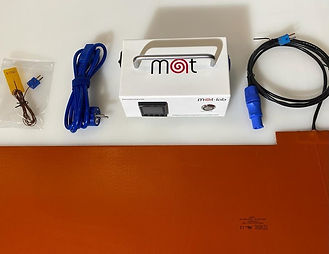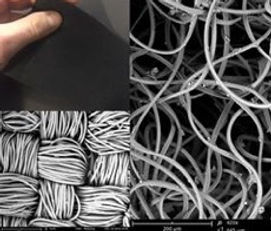NEWS & EVENTS



Let's MAT, people. Delivery of pre-ordered MAT systems starts in June!
In June 2022, Precision Mat will reach a milestone of delivering MAT systems to museums, libraries, universities, and conservation labs in the Netherlands, China, USA, Germany, and Italy. It’s a game-changing mobile low-energy thermal management device for a whole range of day-to-day treatments on paintings, paper, and modern and contemporary art materials, which will make future conservation treatments safer, greener, and more sustainable. The second round is planned for delivery in Sept, for inquiries info@precision-mat.com




Presenting innovative research on low-energy precision heat transfer mats at the Heri-Tech 2022 in Florence, Italy
On May 18, paintings conservator Maddalena Magnani (Università degli Studi di Torino) presented a research paper "Innovation in precision low-energy heat transfer using flexible heating mats for targeted treatments in paintings and paper conservation" co-authored with paintings conservators Tomas Markevicius and Nina Olsson (founders of Precision Mat), paper conservator Yuhui Liu (Institute of Conservation at Bavarian State Library, Munich, Germany) and Martina Paganin (Accademia di Belle Arti di Bologna, Italy) on innovative approaches, based on low-energy precision heat transfer, applied in targeted treatments of paintings, paper, and photograph
conservation. The peer-reviewed research paper will be published by Springer at the end of 2022.


MAT in action treating 19th-century canvas depicting Mt. Saint Helen’s before the volcanic eruption of May 1880 by J. E. Stuart
Precision mini heat transfer mat and console were used for localized treatment of planar deformation at 30C (86 F) on a late 19th c oil painting on canvas depicting Mt. Saint Helen’s before the volcanic eruption of May 1880; Oregon Historical Society Museum 75-1.72, Portland, OR, USA. The treatment was carried out by Nina Olsson Art Conservation in Portland, OR.



Development of microporous breathable membrane for humidity treatments in collaboration with Polartec
Moisture and humidification is an essential factor in when treating planar deformation in painting, works of paper or other substrates. However, direct contact between the surface under treatment and water in a liquid phase is to be avoided due to water sensitivity of materials, to avoid excessive swelling of the materials and risks of unwanted changes, such as staining, migrations and leaching of extractable soluble compounds in paint or in the substrate. Traditionally, non-breathable hydrophilic membranes have been used by conservators. Since 2011 Nina Olsson and Tomas Markevicius started testing new types of innovative textiles with polytetrafluoroethylene (PTFE) microporous membranes that provide for both air and water vapor transport, but protect from water in a liquid-phase. They proved particularly effective treating planar deformations in paint, paper or textile support when combined with precision mild heat transfer. Most recently, Tomas and Nina began collaboration with Polartec texile scientists and engineers to develop a microporous membrane tailored specifically for art conservation applications, as a generous contribution by Polartec for the protection of cultural heritage assets worldwide.








New methods of precision mild heat transfer in minimally invasive conservation treatments of paintings on canvas at Conserving Canvas Symposium organized by the Getty Foundation and the Yale University, New Haven 13-17 Oct 2019
Paintings conservators Nina Olsson and Tomas Markevicius presented their innovative methodology and research on precision heat transfer at the Getty's Conserving Canvas Symposium at Yale University. During 3 "sandbox" training sessions Nina and Tomas introduced conservators to new approaches and targeted structural treatments of paintings on canvas made possible by accurate temperature management technologies based on flexible mats for precision heat transfer, coupled with other dominant contributing treatment factors, such as moisture content, pressure, and time. During the "sandbox" session conservators could experiment with nanotechnology and mats developed by the IMAT research project as well as with other heat transfer mats, and discuss their application solving their everyday challenges conserving paintings on canvas. The vivid interested exceeded the space limits of the sandbox auditorium, and Tomas and Nina with the consent of symposium organizers arranged an additional meeting with conservators at the hotel lobby, where the discussions continued in the spirit of 1974 Greenwich conference which has inspired the current Yale symposium. Tomas and Nina are working on their publication for the symposium post-prints and given the interest of conservators are planning to develop a masterclass workshop for the mid-carrier conservators in paintings, paper, and other fields, where precision heat transfer is used.




